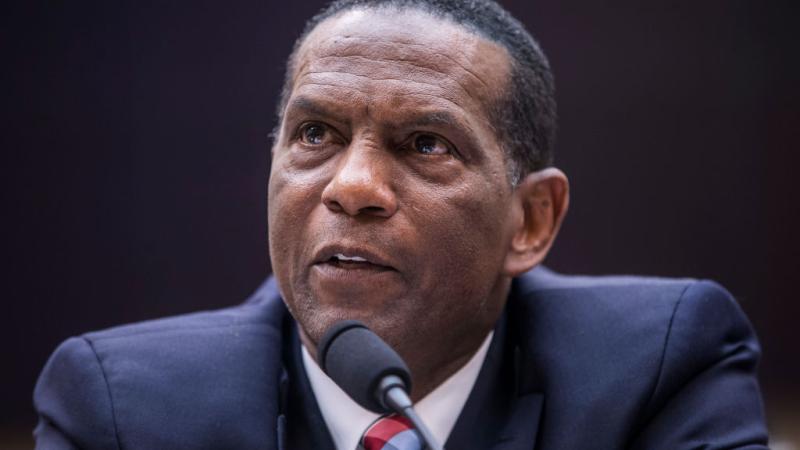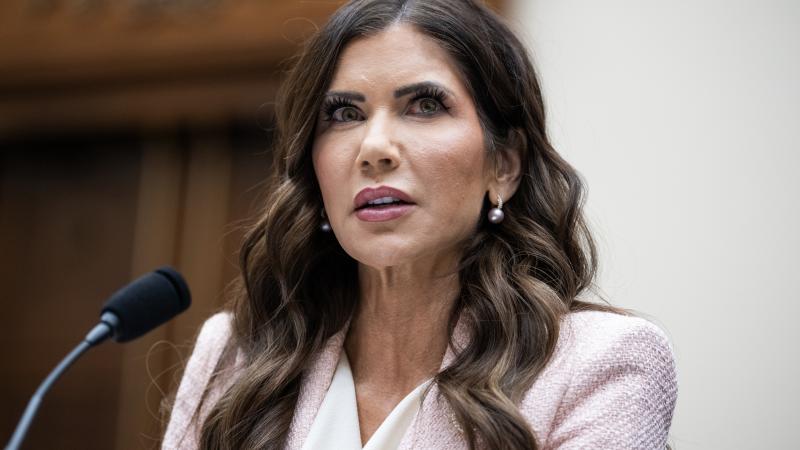Biden says he'd consider shutting U.S. down again, but growing number of nations won't
Experts say targeted lockdowns more likely going forward.
Joe Biden earlier this month gave a preview of his possible COVID-19 mitigation plan if he wins the White House in November, promising he would impose a nationwide lockdown throughout the U.S. if his scientific advisors recommended it.
During an Aug. 23 interview with ABC News anchor David Muir, the Democratic presidential candidate said he would "shut [the country] down" if "the scientists" told him to do so.
"I will be prepared to do whatever it takes to save lives," he said, "because we cannot get the country moving until we control the virus."
That declaration, however, stands at odds with the stated goals of an increasing number of world governments. Although many public health officials believe the broad lockdowns of the last several months had positive effects on the transmission rate of COVID-19, an increasing number of world leaders are signaling that it is unlikely they will return to those policies, with officials instead advocating more targeted measures that might contain the virus without bringing society and the economy to a halt.
Some of the countries most devastated by the COVID-19 pandemic since the start of the year have indicated that, in spite of the substantial losses they suffered from the virus, they have no plans to reimpose national shutdowns to fight off the coronavirus.
British Prime Minister Boris Johnson, for instance — whose country is the sixth-hardest-hit country in the world by population-adjusted death rate — said in mid-July that he would strive to avoid a second lockdown and that he doubted one would be necessary in the future.
"I can't abandon that tool any more than I would abandon a nuclear deterrent," he said. "But it is like a nuclear deterrent, I certainly don't want to use it. And nor do I think we will be in that position again."
Spain has the fifth-highest adjusted death rate worldwide and was at one point in March the world epicenter of the pandemic. Yet, the government has declined to reintroduce a national lockdown even as cases have soared in that country following the easing of the first shutdown. Spanish Prime Minister Pedro Sánchez indicated last week that he was still not considering a second nationwide closure.
"We all — and it seems natural to me — think that the response we have to give in this second phase needs to be similar to that of the first phase," he told media. "And it's not like that."
'It's really a matter of testing'
One of the reasons that both the U.K. and Spain may feel comfortable avoiding new lockdowns is that deaths in both countries have remained largely flat since late June and early July. Spain's deaths have failed to spike to anywhere near the levels seen in March even as recent daily cases have at times approached the rates seen in the spring.
Another possibly mitigating factor is the testing systems both countries have developed since the pandemic began. Stephen Kissler, a postdoctoral fellow at Harvard University's Department of Immunology and Infectious Diseases, told Just the News that widespread testing is one of the lynchpins for any country's strategy against COVID-19.
"Part of the reason why national lockdown was necessary at the beginning of the pandemic was [that] we didn't know where COVID-19 was," Kissler said. "It was really a matter of testing. We didn't necessarily think there was COVID everywhere, but we treated it that way."
"But now we have a much better sense of where COVID is, and where it's spreading," he said. "So if we were in a situation where we needed to do another lockdown, it would likely be a local one, not a national one, and it would likely be over a shorter period of time."
That sense was echoed by the Italian government last Sunday, when Italian Health Undersecretary Sandra Zampa downplayed the possibility of another nationwide lockdown but said targeted measures might be applied in localized regions if necessary.
Health Minister Roberto Speranza was more blunt about it, telling the Turinese newspaper La Stampa: "We will not have a new lockdown."
Italy's optimism is notable: Its experience with COVID-19 in March — which left the country reeling, its healthcare system on the brink of collapse, and its leaders scrambling to impose a severe lockdown nationwide — impelled many other world governments into instituting their own lockdowns for fear of similar outcomes.
Other countries that were similarly hit have expressed a similar reluctance to return to a shutdown policy. In France, which ranks 13th in adjusted deaths worldwide, Prime Minister Jean Castex said in July that his goal was to "prepare France for a possible second wave while preserving our daily life, our economic and social life."
"We're not going to impose a lockdown like the one we did last March," he said, "because we've learned ... that the economic and human consequences from a total lockdown are disastrous."
France has seen a significant spike in COVID-19 cases since late July, with Friday's daily case number coming it at just a few hundred cases shy of the 24-hour record the country set in late March.
Yet the country's leadership is still signaling its reluctance to return to the earlier style of lockdowns, with French President Emmanuel Macron telling media on Friday that France is "doing everything to avoid another lockdown, and in particular a nationwide lockdown," though he did not fully rule out the possibility of such a policy.
And in Belgium, meanwhile — #3 in adjusted deaths worldwide, behind only Peru and the tiny Italian-bound microstate of San Marino — the country's Minister of the Interior and Security Pieter De Crem said in May that a second lockdown was not in the works. "The first lockdown has taken care of the situation in which we have ended up," he said.
Cases in Belgium began to increase in late July, leading experts to claim that a second lockdown would be necessary if numbers continued to go up. Yet cases appear to have been on a slight but steady downward trend in that country since mid-August. Deaths, meanwhile, have not risen above 13 per day since early June.
Kissler said the coming flu season may change the dynamics in the U.S., though he still said testing capabilities may render a broad lockdown ultimately unnecessary.
"There's a chance we could see a nationwide increase of cases in the fall and winter," he said. "And I could potentially see broader lockdowns necessary because it's hitting everywhere at once. But more testing even in the fall could make that response more agile and targeted."
The wide-scale lockdowns under which much of the world strained throughout the spring were by and large uncommon before this year. Targeted lockdowns of certain hard-hit areas were known during pandemics such as the 1918 Spanish Influenza, yet countrywide shutdowns to combat virus outbreaks appear to be relatively rare throughout human history; a 2006 review of influenza mitigation measures, for instance, found "no historical observations or scientific studies that support the confinement by quarantine of groups of possibly infected people for extended periods in order to slow the spread of influenza."
















